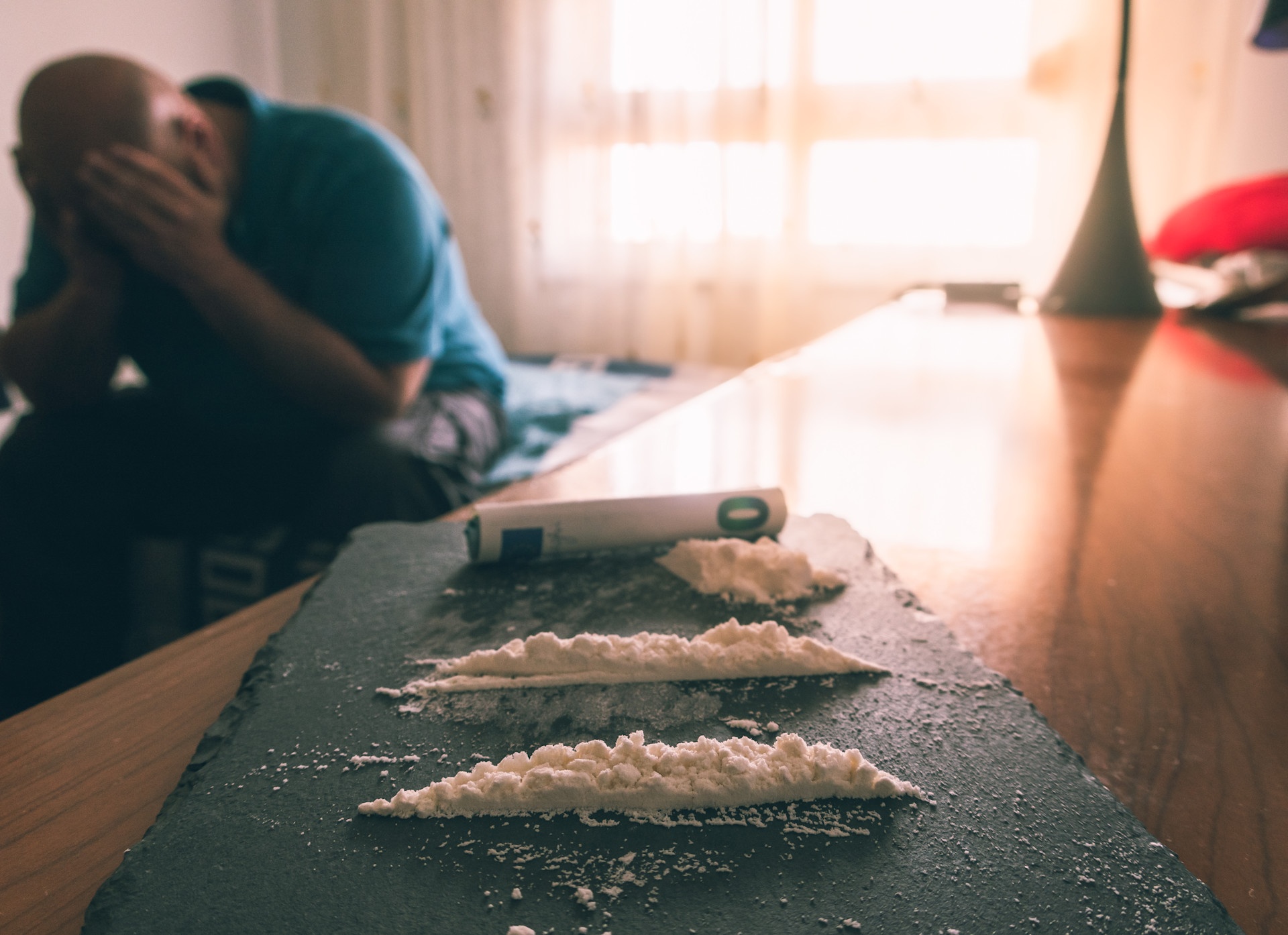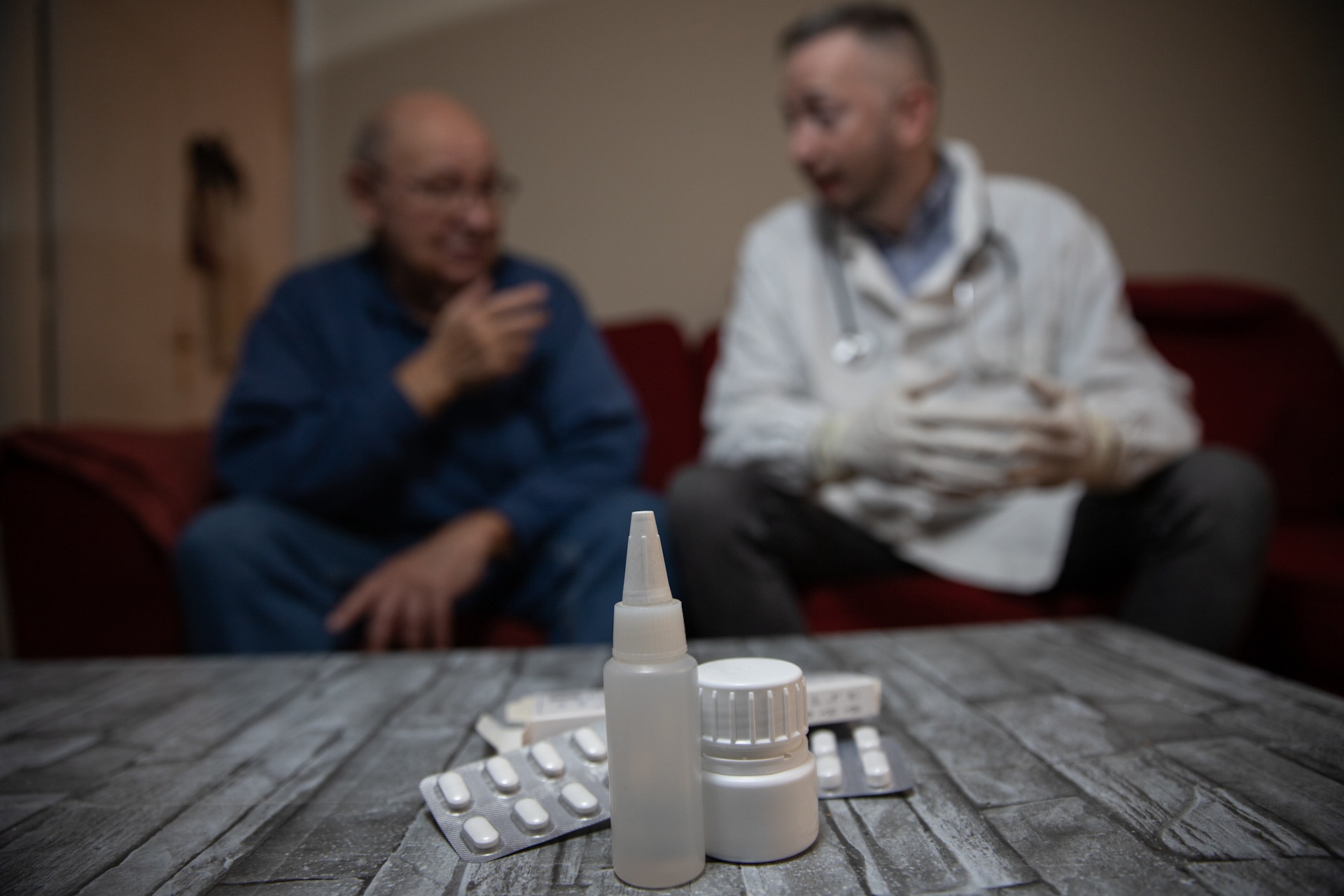Breaking Free From Cocaine Addiction


Discover how to find the right cocaine addiction treatment program California offers. Explore effective therapies and personalized care for lasting recovery.
Cocaine addiction impacts countless lives across California, disrupting families and leaving individuals feeling trapped. Seeking help can feel overwhelming, but effective solutions are within reach. A comprehensive cocaine addiction treatment program California residents trust is crucial for recovery and reclaiming a fulfilling life.
At The Forge Recovery Center, we specialize in providing personalized care tailored to your unique needs, combining evidence-based therapies with compassionate support to help you or your loved one break free from addiction. In this article, we will explore the different treatment options available and how to find the right path toward lasting recovery.
Understanding Cocaine Addiction

Cocaine stimulates the brain’s reward system by releasing high levels of dopamine, creating intense feelings of euphoria that drive repeated use. Over time, the brain adapts, requiring more of the drug to achieve the same effects, which leads to physical dependence and psychological cravings. Left untreated, cocaine addiction can cause severe mental health issues, cardiovascular problems, and social isolation.
Signs and Symptoms
Recognizing the signs of cocaine addiction is a critical step toward seeking help. Symptoms may manifest physically, psychologically, and behaviorally:
Physical Indicators:
Dilated pupils
Rapid heart rate
Nosebleeds or damage to nasal passages (from snorting cocaine)
Sudden weight loss or decreased appetite
Restlessness or hyperactivity
Psychological Signs:
Intense mood swings
Paranoia or hallucinations
Anxiety and depression
Impaired decision-making or judgment
Behavioral Symptoms:
Secretive or erratic behavior
Financial problems due to spending on the drug
Neglect of responsibilities at work, school, or home
Withdrawal from friends and family
Identifying these symptoms early can help initiate timely intervention, potentially preventing more severe consequences.
Causes and Risk Factors
Cocaine addiction arises from a combination of genetic, environmental, and social influences, making it a multifaceted disorder:
Genetic Factors:
A family history of addiction can increase susceptibility to developing substance use disorders.
Genetic predispositions may affect how the brain responds to cocaine’s effects.
Environmental Influences:
Stressful life circumstances, such as trauma or abuse, can lead to self-medicating with drugs.
Easy access to cocaine, especially in social or professional circles, can increase the risk of use.
Social and Behavioral Factors:
Peer pressure and cultural norms around drug use may encourage experimentation.
Lack of support systems or mental health resources can exacerbate addiction risk.
Understanding these underlying causes is essential in creating effective, individualized treatment plans. By addressing these factors, programs like The Forge Recovery Center provide not only recovery but also the tools to maintain long-term sobriety.
The Importance of Seeking Treatment

Overcoming cocaine addiction is not just about stopping drug use; it’s about addressing the profound health impacts and creating a foundation for lifelong recovery. Seeking professional treatment provides the necessary support and structure for this journey.
Health Implications
Cocaine use poses significant risks to both short-term and long-term health.
Short-term Risks: Users may experience heart palpitations, elevated blood pressure, and heightened risk of stroke or cardiac arrest. Psychological effects include paranoia, anxiety, and erratic behavior.
Long-term Risks: Chronic use can lead to severe cardiovascular damage, respiratory issues, and neurological impairments, including memory loss and cognitive decline. Additionally, prolonged use often exacerbates mental health conditions like depression and anxiety, creating a vicious cycle.
Benefits of Professional Treatment
Professional treatment is critical for managing addiction’s complex effects and setting the stage for recovery.
Comprehensive Health Benefits: Treatment programs provide medical care to address the physical consequences of addiction, ensuring safer recovery.
Sustained Recovery Pathways: Programs equip individuals with coping mechanisms and relapse prevention strategies, empowering them to maintain sobriety.
Are You Struggling with Mental Health or Addiction?
We Can Help. Call Us Now!
CALL: 877-839-1772
Types of Cocaine Addiction Treatment Programs in California
California offers a range of evidence-based treatment programs tailored to the diverse needs of individuals struggling with cocaine addiction. These programs address both the physiological and psychological aspects of recovery.
Detoxification
Detoxification is the first and often most challenging step in recovery.
Medical Supervision: During detox, professionals manage withdrawal symptoms, which can include fatigue, irritability, and intense cravings, ensuring safety and comfort.
Stabilizing Patients: Medically supervised detox prepares individuals for the next phases of treatment by addressing immediate physical dependence.
Inpatient Rehabilitation
Inpatient rehab provides a structured environment for intensive recovery.
24/7 Support: Residential programs offer round-the-clock medical and emotional support, making them ideal for severe addictions.
Therapeutic Environment: Away from triggers, individuals focus entirely on healing through counseling, group therapy, and skill-building sessions.
Outpatient Rehabilitation

Outpatient rehab allows individuals to recover while maintaining their daily routines.
Flexibility: Patients attend therapy and support sessions on a scheduled basis, balancing treatment with work or family responsibilities.
Ongoing Support: Outpatient programs provide continued access to therapy and peer groups, ideal for long-term maintenance.
Behavioral Therapies
Behavioral therapies play a pivotal role in addressing the psychological roots of addiction.
Cognitive Behavioral Therapy (CBT): CBT helps individuals identify and change negative thought patterns and behaviors contributing to substance use.
Other Modalities: Approaches like Motivational Interviewing and Dialectical Behavior Therapy (DBT) further empower individuals to develop healthier coping strategies.
Support Groups
Support groups offer a sense of community and accountability in recovery.
Cocaine Anonymous (CA): Modeled after the 12-step approach, CA provides peer-driven support and shared experiences to foster mutual growth.
Complementary to Therapy: Support groups often supplement formal treatment, helping participants maintain sobriety through regular interaction with others who understand their struggles.
By understanding and exploring these treatment options, individuals can choose a path that aligns with their needs and goals for recovery.
Personalized Treatment Plans at The Forge Recovery Center
At The Forge Recovery Center, we understand that no two individuals experience addiction in the same way. That’s why we create personalized treatment plans designed to meet your unique needs and goals for recovery.
Comprehensive Assessment
A thorough assessment is the foundation of an effective treatment plan.
Individualized Evaluation: We conduct in-depth evaluations of your medical history, mental health, and substance use patterns to design a targeted approach.
Customized Strategies: This ensures the treatment addresses the root causes of addiction and supports sustainable recovery.
Integrated Therapies
Recovery is most effective when all aspects of health—physical, mental, and emotional—are addressed.
Medical Interventions: We manage physical health through detox and medication-assisted treatment, as needed.
Psychological Support: Evidence-based therapies like CBT and trauma-informed care help you develop coping mechanisms and resilience.
Holistic Approaches: Techniques such as mindfulness, yoga, and art therapy provide additional tools for healing and stress management.
Aftercare Support
Sobriety is a lifelong journey, and support doesn’t end when treatment concludes.
Relapse Prevention: We provide strategies and resources to help you recognize and manage triggers.
Ongoing Connections: Access to alumni programs, support groups, and therapy ensures you have a safety net as you transition back into daily life.
Are You Struggling with Mental Health or Addiction?
We Can Help. Call Us Now!
CALL: 877-839-1772
Choosing the Right Treatment Program
Selecting the right treatment program is essential for effective recovery. Here are key factors to consider when evaluating options in California.
Accreditation and Licensing
Accreditation ensures a program meets rigorous standards of care.
Certification Matters: Look for programs certified by organizations like CARF or The Joint Commission, which evaluate treatment quality.
Qualified Staff: Ensure that the center employs licensed professionals, including therapists, counselors, and medical staff.
Evidence-Based Approaches
Programs rooted in science provide better outcomes.
Proven Methods: Evidence-based treatments, such as CBT and medication-assisted therapy, are backed by research and tailored to individual needs.
Innovative Practices: Leading centers often incorporate new and effective modalities to stay ahead in addiction care.
Family Involvement
Family participation is a vital part of the recovery process.
Strengthening Bonds: Family therapy addresses relational challenges and builds a supportive environment for the individual in recovery.
Education and Support: Families learn about addiction, enabling them to provide better emotional and practical assistance.
Overcoming Barriers to Treatment

Many individuals hesitate to seek help due to perceived obstacles. Identifying and addressing these barriers can make recovery more accessible.
Addressing Stigma
Stigma is one of the most significant hurdles to seeking treatment.
Changing Perspectives: Education and awareness campaigns can shift public perceptions, reducing shame for those struggling with addiction.
Supportive Spaces: Centers like The Forge Recovery Center foster nonjudgmental environments where individuals feel safe seeking help.
Financial Considerations
Finances often deter individuals from pursuing treatment, but options are available.
Insurance Coverage: Many programs accept insurance plans, covering a significant portion of treatment costs.
Assistance Programs: Sliding scale fees, scholarships, and state funding can make treatment more affordable.
Accessibility
Access to treatment facilities can be another obstacle, especially in rural areas.
Expanding Reach: California offers a wide network of facilities, ensuring that help is available close to home.
Virtual Options: Telehealth services provide therapy and support for those unable to attend in person.
By addressing these challenges, individuals can confidently take the first step toward recovery, knowing that solutions and support are within reach.
Are You Struggling with Mental Health or Addiction?
We Can Help. Call Us Now!
CALL: 877-839-1772
Cocaine Addiction Holding You Back? We’re Here to Help
Overcoming cocaine addiction is possible with the right support and treatment. By taking the courageous step to seek help, you open the door to a healthier, more fulfilling life. At The Forge Recovery Center, we provide personalized care and evidence-based programs designed to address your unique needs. Whether you or your loved one is struggling, our team is here to guide you through every stage of recovery. Don’t let addiction control your future—reach out today to begin the journey toward freedom and lasting sobriety. Help is just a call away, and we’re ready to support you.
Are You Struggling with Mental Health or Addiction?
We Can Help. Call Us Now!
CALL: 877-839-1772





